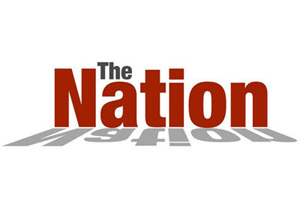
AUCKLAND (The Nation/Pacific Media Watch): Fiji’s controversial Attorney-General, Aiyaz Saiyed-Khaiyum, said the country will hold elections by September 2014 and will lift restrictions on the media before then.
Speaking today on TV3’s The Nation on June 25, Saiyed-Khaiyum said that anybody would be able to stand for the elections.
And the elections would be based on a common role.
Traditionally, Fiji has had an electoral system which split electorates between indigenous Fijians, Indo-Fijians and other ethnic groups.
“You have for the first time a Prime Minister who's saying everybody's a Fijian,” he said.
“That is very powerful, that is very potent, is very modernising, is very forward looking.
“We must have one person one vote. Irrespective of your communal background you're a Fijian.
'Equal citizenry'
“You have a common and equal citizenry.
“In Fiji we have not had a common and equal citizenry being applied practically and legally also.”
In the interview, Saiyed-Khaiyum hinted that Fiji would send its rugby team to the World Cup.
New Zealand has threatened to bar several players who are members of the military.
Under its “smart sanctions” policy New Zealand has barred members of the Fiji government or its military from entering the country since the commander, Commodore Frank Bainimarama, seized power in a coup in 2006.
“Fiji will be denied the right to field the best team if the New Zealand government continues with this ban,” he said.
“By banning a few rugby players that may be crucial to the rugby team, what is the New Zealand government getting out of it? What is the objective of it?”
Sweeping powers
Saiyed-Khaiyum defended the country’s Public Emergency Regulations (PER), which give the government wide sweeping powers, and its Media Decree, which controls the media.
He said they were needed while the country undertook a fundamental restructure of its society and institutions.
“You have a different level of development; you have a different colonial history. You cannot say just because something's done in New Zealand it should apply in Fiji,” he said.
But he said the media restrictions would need to be reviewed before the elections took place.
Asked by interviewer Sean Plunket when that would be, he said: “You'll find out before the elections. I mean that’s an assessment that’s made by the government. I'm not here to give you specific timeframes.”
He would not be drawn on allegations being made by the fugitive colonel, Ratu Tevita Mara, alleging torture by the military and corruption within the government.
You have one person who's suddenly come out and made all these comments,” he said.
“It’s fits in very neatly with your government's foreign policy position.
“It fits in very neatly with some of the mainstream media perception.
“So suddenly you’ve all jumped on the bandwagon. “



